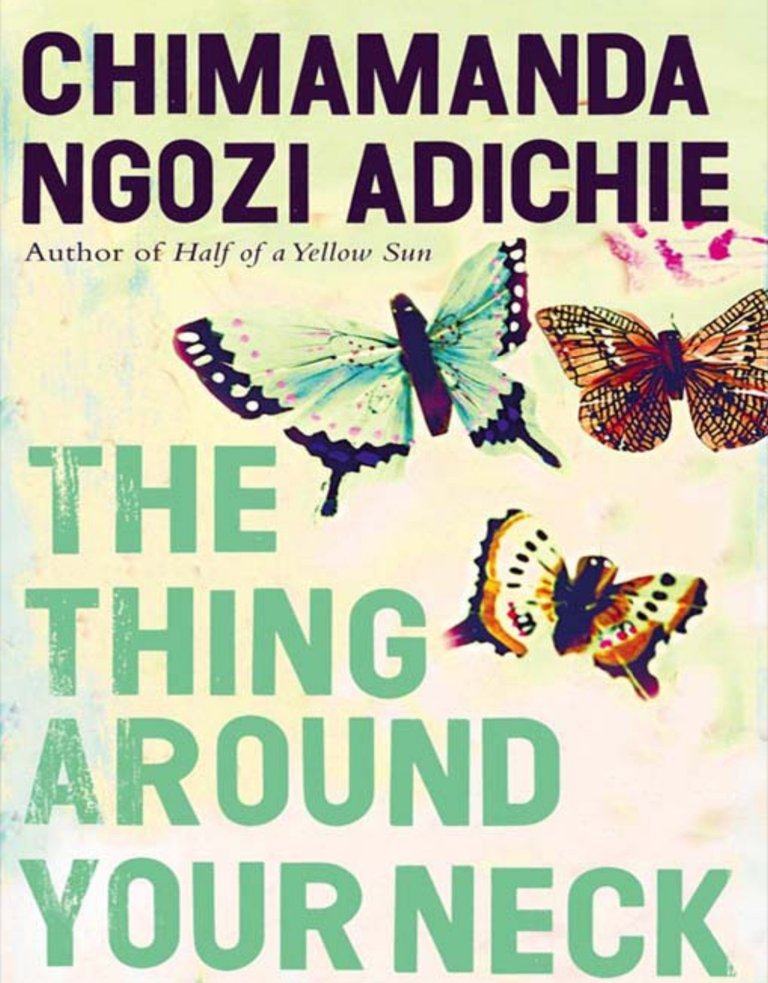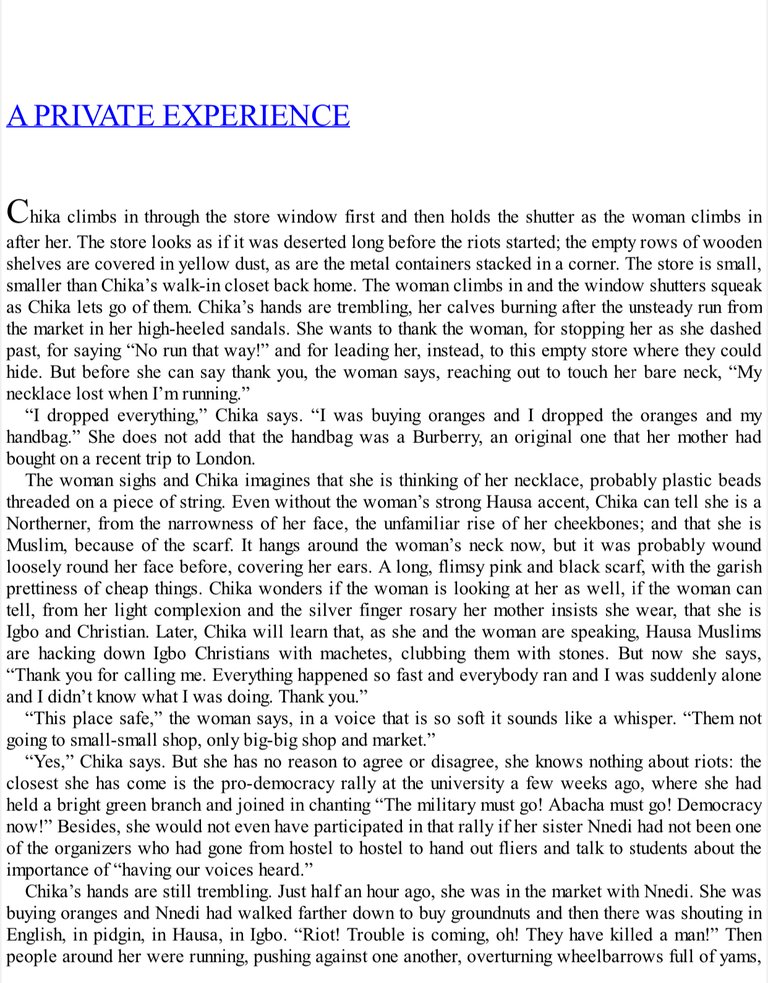A Great Lesson from A Private Experience by Chimamanda Ngozi Adichie

Recently, I wrote a post about getting to know people rather than judging them based on factors like religion, tribe, country, appearance and so on. These factors can sometimes be deceptive. I have had conversations with friends and even strangers who say they can only be friends with people from other religions, but relationships and marriage are out of the question. Whenever I ask them why, their reply is always that their parents wouldn’t approve of it. I am a Christian who was born and brought up in a Christian home. Although I take my faith seriously, I don’t have stereotypical views about people from other religions. As a matter of fact, some of the best friends I have made are Muslims. I know people who go as far as saying they won’t be friends with people if they are not of the same religion.
The issue of stereotyping people did not start today, it started decades ago. The most intriguing part is that parents are the ones promoting this issue. For example, a Christian parent would tell their children not to ever bring a Muslim partner to their house. Similarly, a Muslim parent might also do the same. I don’t know how it works in other countries, but here in my country, this is one of the issues that causes bitterness and in some cases, war. This issue is what Chimamanda explores in one of her short stories in The Thing Around Your Neck: A Private Experience.
A Private Experience by Chimamanda Ngozi Adichie revolves around two characters; Chika, a young Christian lady and an unnamed Muslim woman. The short story opens with a religious conflict between Christians and Muslims. Apparently, a Christian driver ran over a copy of the Koran. The Muslims around chased after him, killed him and burnt his body. They didn’t only stop there, they started chasing after other Christians. Chika escapes the riot and hides in an abandoned shop where she meets an older Muslim woman. From her dressing, she figured she was a Muslim.

If this story wasn’t a short story, Chimamanda would have covered the background of Chika. She would probably have added how her parents warned her to avoid Muslims. However, Chika discovers that this older woman who is a Muslim is nothing close to the views she grew up with. Not only did she give Chika a handkerchief to cover her bleeding leg, the two ladies also bonded by sharing their experiences. While the Christains and Muslims were hacking themselves to death outside, Chika and the older woman remained inside the abandoned shop, binding and learning new things about each other. One valuable lesson Chika learnt that day is not to judge people based on their religion. She grew up with the idea that Muslims are “different,” only for her to be saved by a Muslim.
A lot of wars would have been avoided if only humans see beyond religious, racial and tribal differences. This short story reminds me of a tribal war that happened in my town when I was in high school. I remember that day like it happened yesterday. It was a Friday. Just about 30 minutes before the closing time, we heard gunshots. Teachers and students scattered and ran into different classrooms. Within minutes, we saw thick smoke coming from different directions. Till today, I don’t know what caused the war, but we all heard that it was a war between the Hausas and Yorubas. Many people lost lives and properties that day. That war could have been avoided if the Yorubas had looked beyond the tribal differences.
In conclusion, The Thing Around Your Neck by Chimamanda Ngozi Adichie is a collection of short stories, filled with many lessons. This is one of the lessons I picked out from one of the short stories.
Images in this post are screenshots from the soft copy of the book.
Thanks for reading.
Posted Using INLEO

Congratulations @justfavour! You have completed the following achievement on the Hive blockchain And have been rewarded with New badge(s)
You can view your badges on your board and compare yourself to others in the Ranking
If you no longer want to receive notifications, reply to this comment with the word
STOPThanks, buzzy.
You're on fire @justfavour! Your daily posts are keeping Hive lively and exciting.
We can even learn a lot from real-life. The honest-ness in your writing is truly impressive, thank you a lot for taking the time to put this post up.
I'm glad I wrote this review.
Thank you so much for stopping by.❤️
Reading your post I feel that the story is not just an incident but a living picture of women's rights identity and struggle.
Thanks for sharing
I agree with you. The story strongly depicts the struggle between society and identity.
Thanks for stopping by.❤️
You have beautifully illustrated how a personal experience can question the long-standing divisions in our society.
We really need to battle the issue of divisions in our society.
Thanks for stopping by.
Sometimes you won't blame parents for stopping their kids from being associated with other tribes or religions, it's usually from a place of experience. Someone that met with good people will generalize it and say the people from that tribe/religion are good then someone that meet with bad people will also do same.
While I don't support it, I can't totally blame them
Hello there, my friend. It is true that our parents tell us these things from a place of experience, but don’t you think times have changed?
Yea I know times have changed but when you stay in the core north and hear what some of those fanatics still say/do, you too will advise yourself to avoid some/most of them.
I know it's not all of them but it's majority, I am from North Central so I know what I am saying. So also some tribes.
Times have changed but some people's mindset is yet to change this includes even the so called educated ones